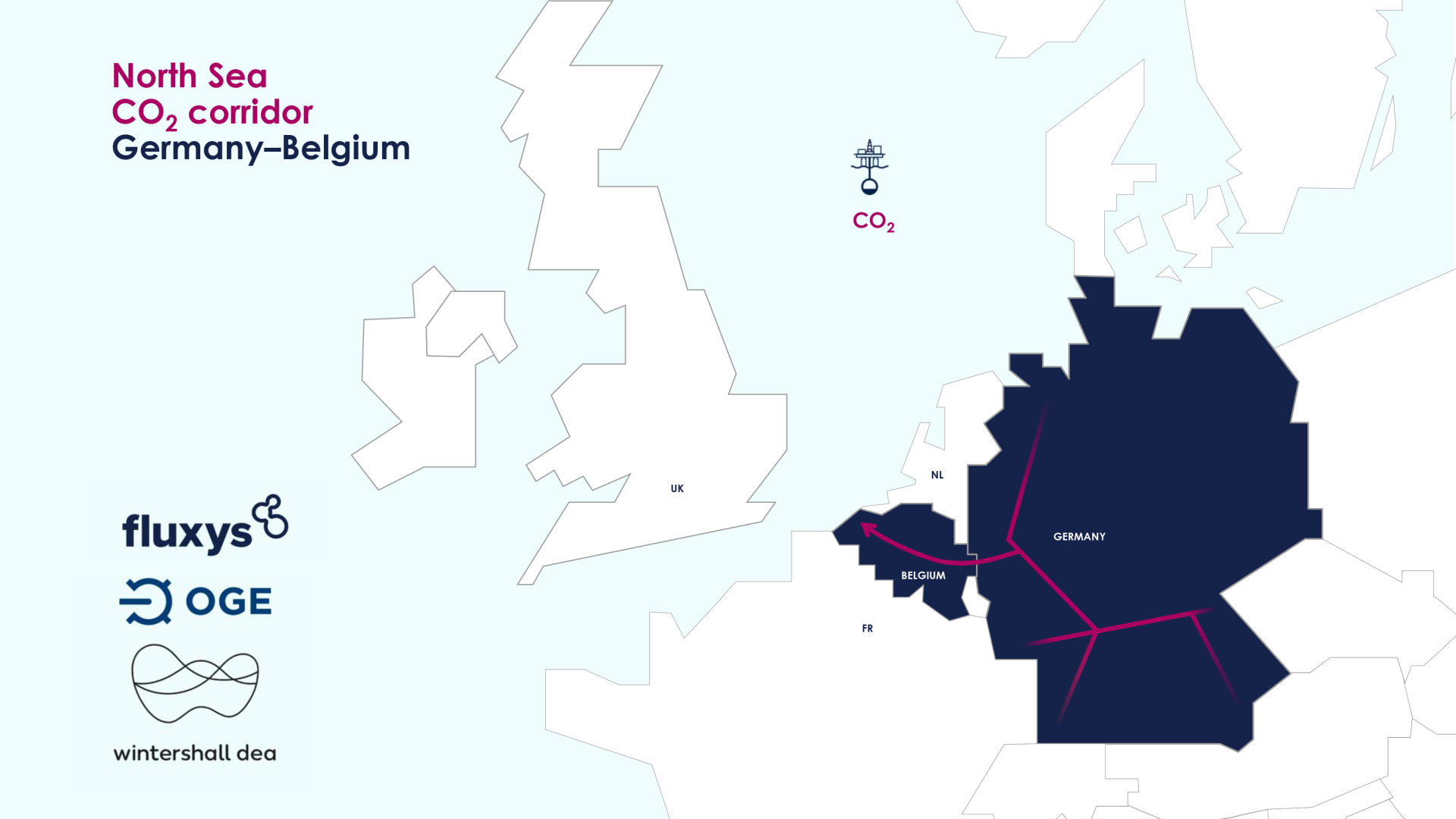Germany/Belgium – Three energy companies – Fluxys, OGE, and Wintershall Dea – signed a landmark cooperation agreement to develop infrastructure for CO₂ transport and hydrogen connection between the two countries, during the recent visit of the Belgian Royal Couple to Germany.
The agreement aims to construct a cross-border pipeline for transporting captured CO₂ from industrial areas in southern Germany to CO₂ export hubs in Belgium. From these hubs, the CO₂ will be permanently stored in North Sea reservoirs, contributing to emissions reduction efforts.
Fluxys Belgium develops and operates the CO₂ transport pipeline network in Belgium and aims for an open-access infrastructure. Fluxys emphasizes the importance of an open-access CO₂ infrastructure, allowing various industries to participate and contribute to achieving decarbonization goals. The Belgian backbone network will not only serve German industries but also facilitate CO₂ transport within Belgium.
OGE is responsible for building the CO₂ transport pipeline network in Germany. Wintershall Dea is engaging potential customers and participates in developing the CO₂ transport network.
Target capacity
The CO₂ transport infrastructure aims to have the capacity to transport 30 million tons of CO₂ per year by 2030, a significant contribution to emissions reduction targets.
In addition to CO₂ transport, Fluxys and OGE collaborate on building a cross-border hydrogen connection between Belgium and Germany near Eynatten, scheduled for completion by 2028. This connection forms part of the larger “European Hydrogen Backbone” initiative and will facilitate the transportation of clean hydrogen, another key element in the transition to a sustainable energy future.
This collaboration between Germany and Belgium demonstrates a strong commitment to tackling climate change through joint efforts.





